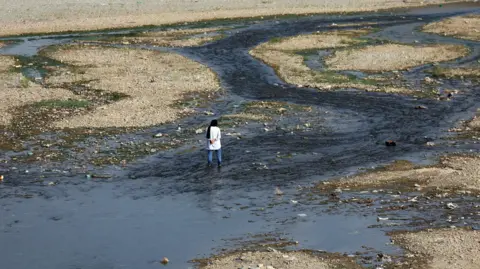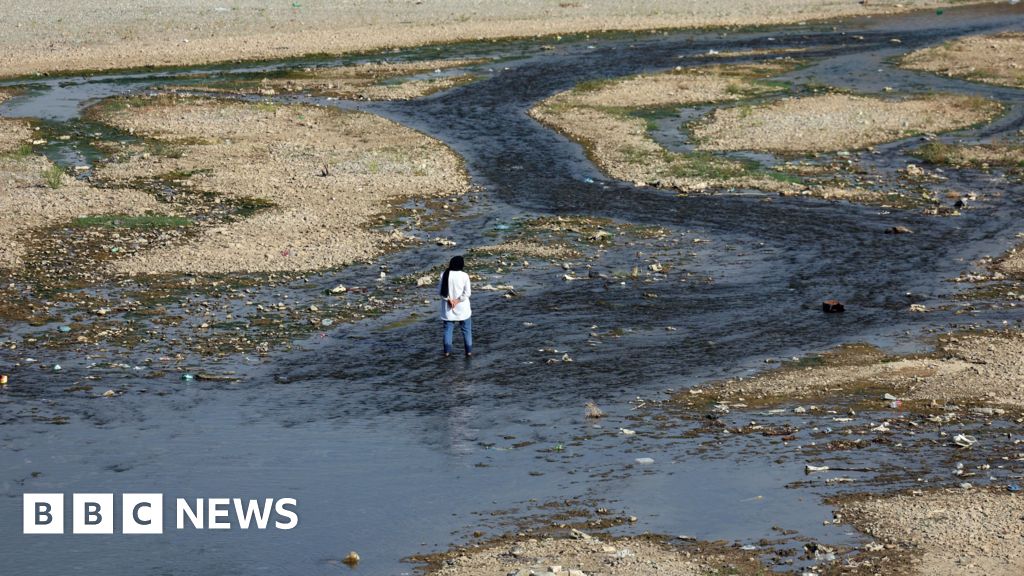Parham GhobadiBBC Persian

EPA
Iran, particularly Tehran, is grappling with an unprecedented drought this autumn as rainfall hits record lows and reservoirs are nearly empty. Authorities are urging citizens to conserve water as conditions worsen.
President Masoud Pezeshkian has warned that if rain doesn’t come soon, water rationing in Tehran may be necessary, although he suggested this might still lead to severe issues. He even hinted at the possibility of evacuation if rationing fails to stabilize the situation.
Such comments have sparked backlash; former Tehran mayor Gholamhossein Karbaschi described the evacuation suggestion as absurd, asserting that it is impractical.
Iran’s meteorological department predicts no rain for the next ten days, leading to worsening conditions in daily life. Residents are already feeling the impact in the capital, with some planning to buy water tankers for essential needs.
Dams on the Verge of Empty
The Latian Dam, a key water source for Tehran, is currently operating at under 10% capacity. Similarly, the Karaj Dam, which serves both Tehran and Alborz, is in dire straits. Local residents have remarked they’ve never seen the dam so depleted.
Concerns About Water Cuts
The government is counting on rainfall in late autumn, but forecasts remain grim. Energy Minister Abbas Ali Abadi has cautioned the situation could necessitate severe cuts to water supplies, including reducing flow to zero at certain times.
Addressing Infrastructure and Broader Issues
Minister Abadi attributed the crisis not solely to lacking rainfall but also to aging infrastructure and recent impacts from conflicts, highlighting the 12-day war with Israel that resulted in significant flooding in affected areas.
Beyond Tehran, numerous provinces, including West and East Azerbaijan, face a similar crisis, with water levels falling alarmingly low. In Mashhad, for instance, water reserves are reported to be at critical levels.
A Long-Predicted Crisis
The water crisis in Iran has been long anticipated, with even Supreme Leader Ayatollah Ali Khamenei warning about the impending shortages for years. As a result, major cities like Tehran, Karaj, and Mashhad, which house over 16 million people, may soon confront severe water shortages.



